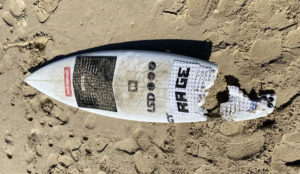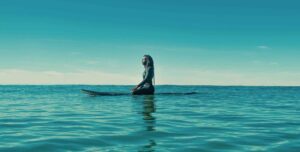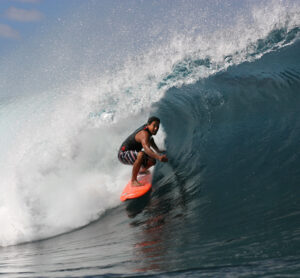BY BRIAN SOUSA
“Waves taught me spirituality as opposed to religion.” – Matt George
“…Researchers finding that water is a key ingredient – if not the key ingredient – in experiences people often call holy…” – Jaimal Yogis
You may be devout, agnostic, atheist, or somewhere in between. Regardless, if you surf, I bet you’ve experienced it: When out in the deep blue, your worries are replaced by a feeling of profound insignificance and an intangible sense of connection.
As the percentage of adults in the U.S. who dig organized religion declines, a survey by the Pew Research Center finds that 64 percent of Americans consider themselves spiritual. The survey defined spirituality as “a relation to the supernatural, looking “inward into the depths of the self,” or a sense of connection “with other humans, creatures, and nature.”
As our search for spirituality intensifies, the number of surfers in the U.S. rises, hitting almost four million in 2023. Is there a relation between our quest for enlightenment and our search for swells? Here are a few ways in which surfing and spirituality ride together.
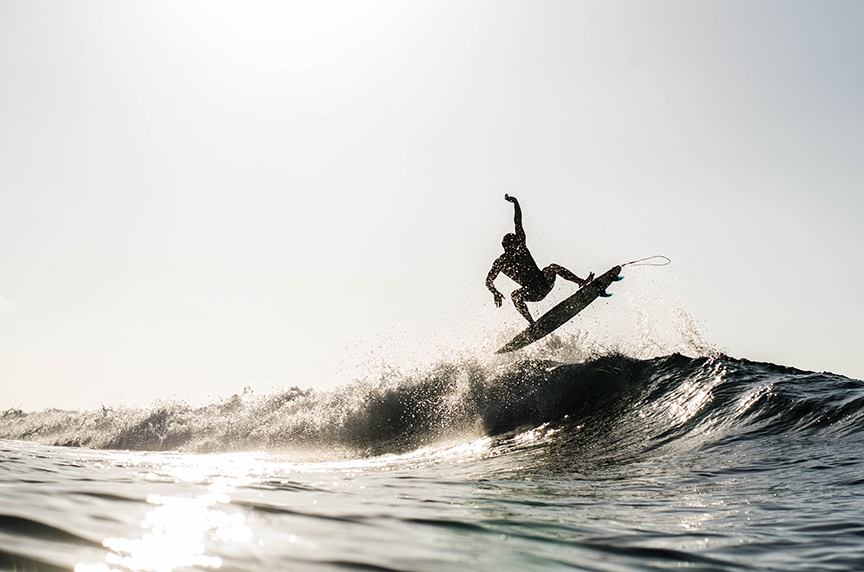
Photo: Shutterstock
Synagogue of style
Our best surfing occurs when we enter a flow state and focus only on the immediacy of the impending swell. Board beneath us. Bottom turn. Glide along the edge of the frame. The best surfers achieve a sense of near-holy presence when connecting with the power of a wave: this becomes their unique style.
Bron Taylor, professor of religion, nature, and environmental ethics at the University of Florida, suggests that there is “…a religion-resembling-dimension to the practice of surfing. People get up at monastic hours before the sun comes up,” for the “meditative dimension” [of] riding waves.
Of course, when we’re out in the surf, our worries – marooned on dry land – can still creep in. As such, surfing mimics meditation and the constant struggle to empty our minds of thoughts.
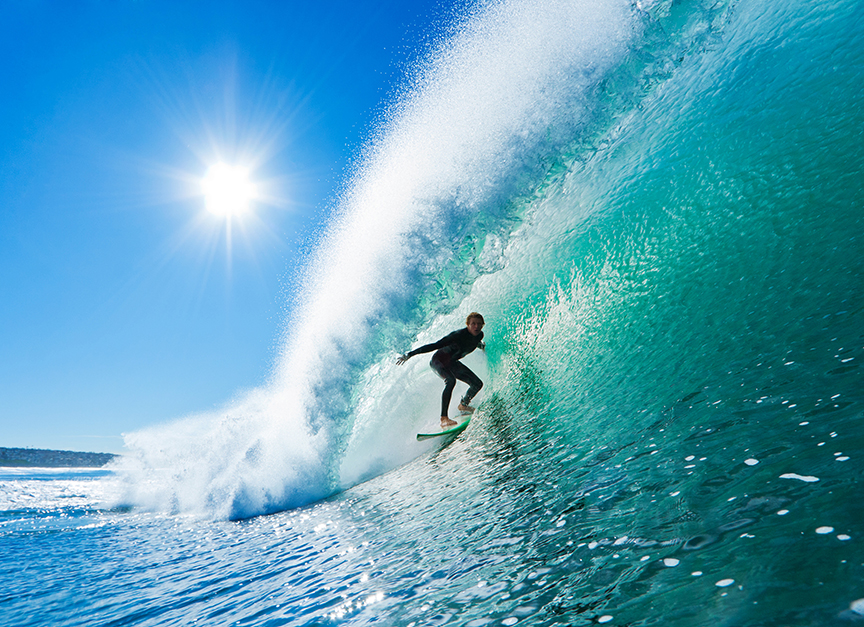
Photo: Shutterstock
Temple of tube rides
Surfers know that the cycle of the breakers is unceasing, and they are also aware that waves are an ephemeral energy source. To Taylor, who grew up surfing in California, waves are “tremendous, energetic systems” derived “from the big bang, still rolling through the universe.”
To surf is an attempt to extend the life of each wave before it breaks into an apology of thunder and foam. At the end of the wave’s life, the surfer simply paddles out and strokes into another. If this never-ending act of epiphany, destruction, and renewal is not spiritual, I’m not sure what is.
Faith in flow
In The Surfer’s Secret to Happiness, the late Ellis Avery describes watching the surfers at Australia’s Bondi Beach while coping with a string of health setbacks. Avery noticed that the time the surfers actually spent riding waves “…was minimal compared with the time they spent bobbing around…even the really good surfers spend far more time off the board than on it.”
Waiting on waves teaches us perseverance and patience. Taylor also singles out the idea that most time in the water is spent paddling, with “human civilization behind you, and out in front of you, a great wilderness.”
Recently, I was in the pocket of a long, glassy right when a random boil of chop tossed me head over heels. We can’t predict what any one wave will do. When challenged by our aquatic wilderness, surfers must dive deep, relax, and cede control to the sea.
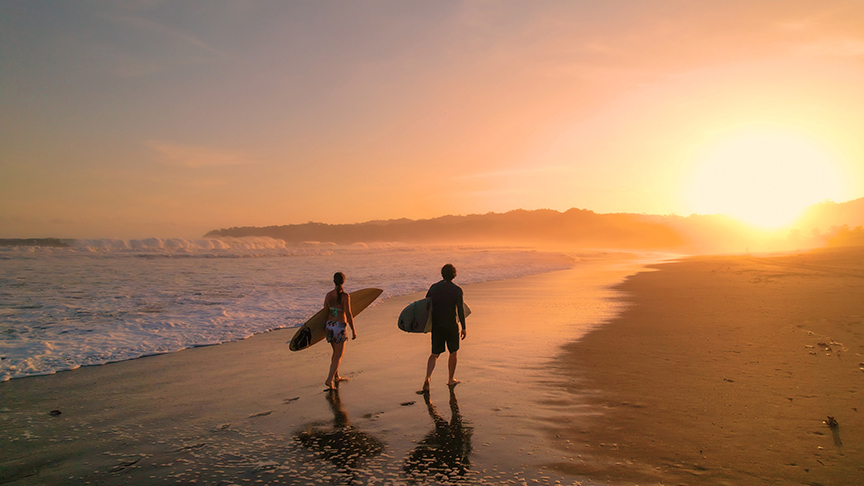
Photo: Shutterstock
Fellowship of fear
Many people turn to prayer for comfort when inexplicably terrible events occur. Fear is also a significant component of surfing. Big wave surfers, for example, harness the power of panic and then use it like gasoline to fuel their soaring feats.
Even when the waves are smaller, sting rays, sharks and rogue waves lurk within each set, and surfers must balance their fears of unexpected threats. This requires an open, accepting mindset, similar to being in tune with some sort of higher power.
Communion with cetaceans
We face our own insignificance when a pod of dolphins appears, hungry pelicans swoop, or the sun sinks like orange fire into the horizon. Immersion in nature returns us to our origins: the people who roamed the earth thousands of years before us, the creatures that dove under the breakers just as we do.
Taylor, who refers to surfing as a “form of nature spirituality,” says that surfers’ constant exposure to the sea’s foreign landscape and to marine mammals forces them to think deeply about their role in the world. When surfers realize “…that these creatures have their own intelligences, ways of life, curiosities, playfulness; it can get you thinking metaphysically: where do these waves come from, how do they fit in with the energies of the universe?”
One moment from my early 20s remains etched in my memory. Alone on the empty shore where I grew up, I bodysurfed for hours at dusk. Afterward, as I treaded water, I watched years of memories play out on the beach as if I’d tuned into an invisible movie screen. Under the bright glow of the emerging stars, I felt wholly irrelevant yet interminably linked to everything.
Holy hyperbole
This all might seem more exaggerated and dramatic than the WSL scoring disputes. Sometimes conflict plagues the crowded lineup, egos explode, and as surfers, spirituality is the furthest thing from our minds.
However, there exists a sublime connection between mysticism and macking waves, between crafting a spiritual core and carving a sick turn…at least in my humble estimation.
This story first appeared on The Inertia.




